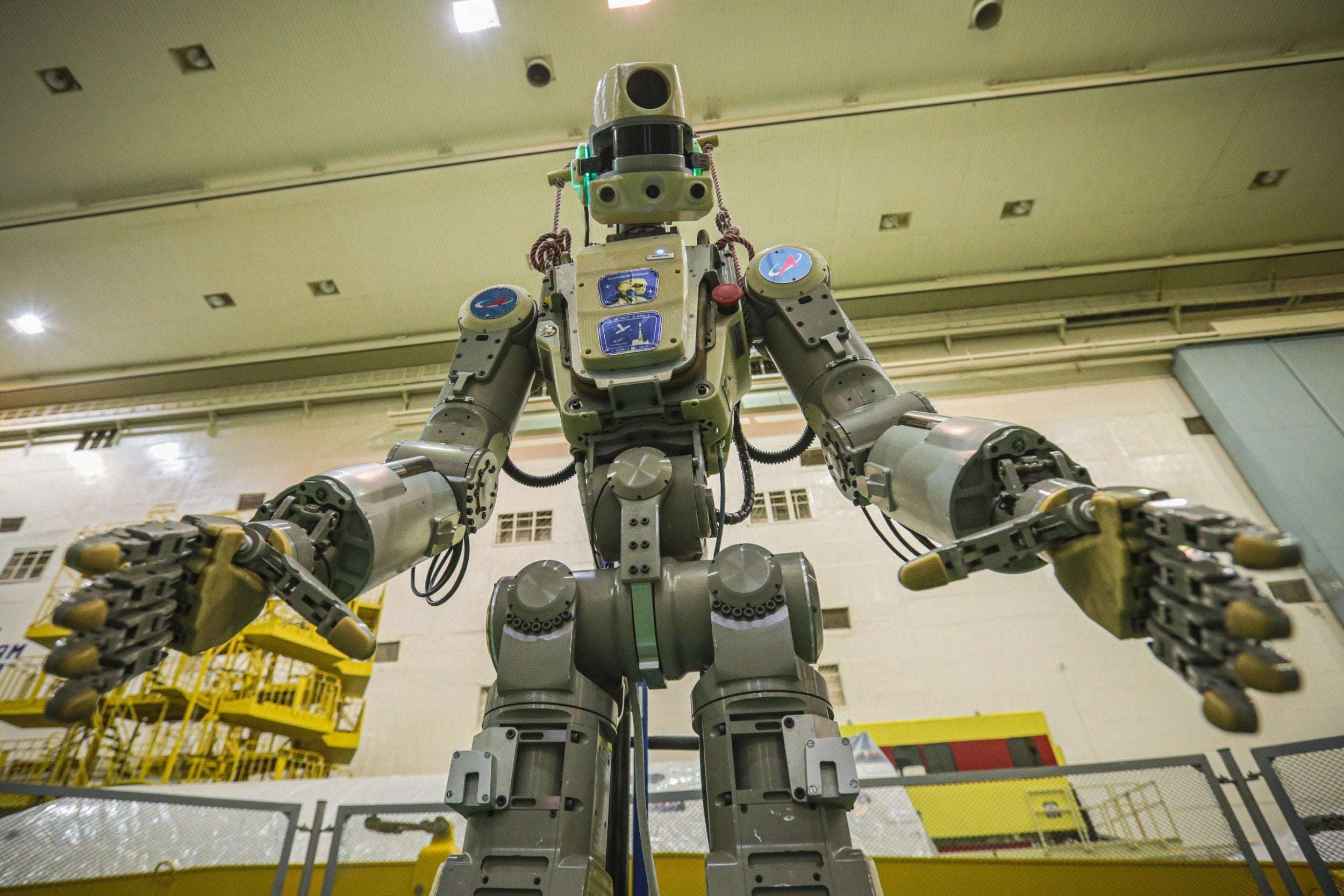Russia's space agency Roscosmos is about to send a humanoid robot to the International Space Station. Skybot F-850 will be sent to the ISS on August 22 on board the Soyuz MS-14 spacecraft, and will spend over two weeks there before returning to Earth on September 7.
The robot, also known as Fedor, made headlines in 2017 when Dmitry Rogozin, director general of Roscosmos, shared a video of it shooting guns. Shortly after he clarified they "are not creating a Terminator, but artificial intelligence that will be of great practical significance in various fields."
Fedor was created to replicate the movement of a remote operator. It is also able to carry out some tasks autonomously. One of the goals of the robot is to send it to the moon ahead of manned missions. "First, we will send a humanoid robot there, and only after that we will send humans, after we study all the risks and learn to cope with them," Rogozin told Russian news agency Tass last month, after announcing the trip to the ISS.
Rogozin said Fedor would spend a week and a half on board, traveling there in the unmanned spaceship.
Ahead of the flight, Rogozin tweeted a promotional video showing Fedor carrying out a range of tasks, saying "dedicated to our Fedor and his upcoming flight." A Twitter account set up for Fedor responded: "Thank you, Comrade General."
When it gets to the ISS, Fedor will join the Russian crew on board to test "the space-designated anthropomorphous system," Rogozin told Tass. Fedor will be met by cosmonaut Alexander Skvortsov who has been trained to handle the robot, the news agency said.
Fedor was created on the instruction of the Russian Emergencies Ministry. A prototype was created in 2016 to carry out rescue operations, but it later expanded into space operations.
"This [launch] will be the first stage of work with anthropomorphic systems, enabling us to proceed further into the far space," Rogozin said about the mission to the ISS.
"[Fedor will be] very important for operations aimed at replacing humans in performing the riskiest tasks, including future manipulations outside space stations."
In an interview with Sputnik News, Roscosmos science adviser Alexander Bloshenko said Fedor will be able to communicate with the crew on the ISS. "Like any person, Skybot F-850 is very sociable, it has a sense of humor," he said. "As I have mentioned before, it can support any topic of conversation and answer a variety of questions: from welcoming remarks, continuing with a speech about its creators and ending with the philosophy of space."
He said there are several algorithms in place to ensure the safety of Fedor while on the ISS, making sure it does not make any unexpected movements on board. When it returns to Earth, results of the experiment will be analyzed. Subsequent trips to space will be made based on these results—and may potentially involve sending Fedor out into open space. "At the moment, there is a draft of a full-fledged program for further work but it is premature to present it," Bloshenko said.

VegDestroyer on August 15th, 2019 at 14:03 UTC »
Turn down the humour setting a smidge before you send it up
Hashtug on August 15th, 2019 at 13:43 UTC »
Is this a good idea, Barry?
I think it is, Other Barry.
cascua on August 15th, 2019 at 13:09 UTC »
The second picture in the article... The robot is holding guns. Wtf lol
What could possibly go wrong lol